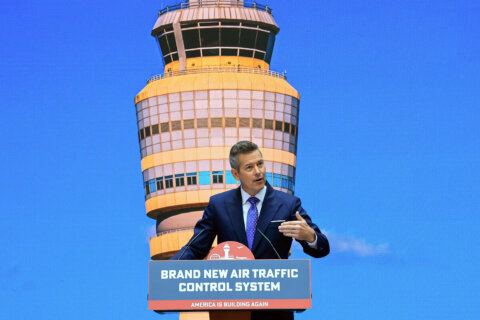WASHINGTON – New numbers show that it wasn’t the Blizzard of 2016, but the unexpected snowfall during the Jan. 20 evening commute, that wreaked the most havoc on the D.C. region and kept motorists in their vehicles 10 times longer than usual.
Traffic delays didn’t return to normal until 11 a.m. the following day, some 17 hours later.
The commute wasn’t just the winter’s worst, it was the worst in the six years such data have been collected, according to the Metropolitan Washington Council of Governments’ Transportation Planning Board.
“The system was not prepared,” said Kanti Srikanth, the government council’s transportation planning director. “People were caught unaware, and when that happened, we showed that’s a really hard time, when everybody gets on the road and the roads are really not usable.”
On Jan. 20, traffic went from mostly free-flowing to complete gridlock around 7 p.m. The temperature hadn’t risen above freezing in days. The snow froze on the street as soon as it made contact. Motorists were stuck for eight to 10 hours; some didn’t get home until past midnight. They stayed off the road when the blizzard hit two days later.
When the snow began Jan. 22, there were 45 percent fewer vehicles on the road than the day before. By the following Saturday, traffic volume had fallen 97 percent.
“The region weathered the historic storm fairly well,” Srikanth said. “It was a major inconvenience [and] loss of economic and social activity for sure, but people did not get stuck like they did on Jan. 20.”
The Jan. 20 icing was harder to avoid, since it happened at one of the worst possible times – the height of the evening rush hour.
“Certain events we cannot anticipate,” Srikanth said. “At that time, there has to be a much more coordinated regional plan of how to handle that, and that is evident by when there is an emergency of any kind, there has to be a coordinated plan.”
The plan has to work regardless of late-day snowfall or an emergency at the heart of the region.
“Unplanned, unexpected events will happen and we need to be prepared for that,” Srikanth concluded. “There has to be a plan of action in how to avoid the trips being put out on the road or on the transit system.”







